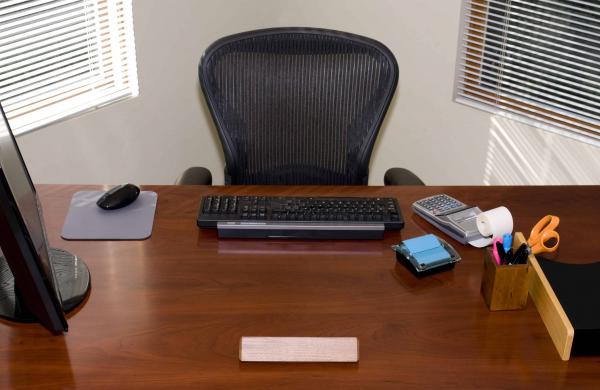
Joaquin Garcia may be the king of skipping work.
After all, he did it for six years. Talk about a long lunch.
Garcia, a building supervisor in Spain still made his $41,500 salary during his extended and self-given break. It wasn't until he was honored with an award for 20 years (14?) of "loyal service" that the company learned he was absent, The Huffington Post reported.
In response, his job, at a water treatment plant in Cadiz, Spain, fined him $30,000 (still less than the amount of money he made in one year) because that's the maximum penalty for government officials, HuffPost reported.
"I wondered whether he was still working there, had he retired, had he died? But the payroll showed he was still receiving a salary," Deputy Mayor Jorge Blas told a local Spanish newspaper. "I called him up and asked him, 'What did you do yesterday? The month before, the month before that?' He didn't know what to say."
Garcia, who retired after this came to light, claims he didn't do anything wrong and that it was workplace bullying that kept him out of the office. The courts eventually ruled in favor of his former employer, though, meaning Garcia will have to pay the fine. Garcia has appealed the ruling.
This isn't the first time workers have virtually disappeared from their jobs. In 2010, it was reported that a community services board member from Norfolk, Virginia, hadn't showed up for work for 12 years and yet still collected a salary and benefits, the Virginian-Pilot reported.
"It's so astounding to me, I don't know what to say," Councilman Barclay C. Winn told the Virginian-Pilot. "I'm embarrassed."
This took an even darker turn back in 2011 when Rebecca Wells of Los Angeles died in her work cubicle. No one discovered her for close to four days after her death. Police suspected at the time that she had died on a Friday and co-workers had left for the weekend without noticing she had passed away, the New York Daily News reported.
These scenarios reveal something more than just an employee's ability to fade into the background, though. It shows there's an importance to paying attention to your co-workers.
Not talking to co-workers has become a growing issue for Americans, in many ways because of technology. Employees can just slack or email their colleagues and never be the wiser about whether they're in the office or not. In fact, more people email their co-workers than talk face-to-face.
Psychologist Susan Pinker said that technology has weakened our ability to have strong relationships with our co-workers, which can affect one's health and satisfaction, Fast Company reported.
"In a short evolutionary time we have changed from group-living primates skilled at reading each other's every gesture and intention, to a solitary species; each one of us preoccupied with our own screen," she wrote in "The Village Effect."
In her book, Pinker noted how face-to-face conversations make our body release oxytocin - the chemical that is "also called the cuddle chemical, as it's the same hormone released in women breastfeeding to bond with their babies," Fast Company reported - which, in effect, makes us happier with our day-to-day lives.
"The real-life connections that we all crave - that we've evolved to benefit from through many millennia of evolution - can't be replaced by texting or email," Pinker wrote.
Of course, with more face-to-face conversations, there's also the risk that there will be turmoil and drama. According to the Harvard Business Review, it's possible for co-workers to disagree with each other - sometimes going as far as to have "an all-out war" where employees are caught taking sides between their arguing co-workers.
And there are some topics that shouldn't be spoken of in the office as to not raise concerns among employees. These include things like salary or money, love lives or whether a co-worker drinks or doesn't drink, among others, according to Bernard Marr, a business and data expert.
That's why it's important to hold conversations over safe topics that won't affect your reputation or your work performance, he wrote.
"There are some things we shouldn't tell anyone at work," he wrote. "Sharing the 'wrong' things with co-workers can quickly backfire and leave us exposed, vulnerable or side-lined. While some banter with colleagues is great, it is important to know where to draw the line."

